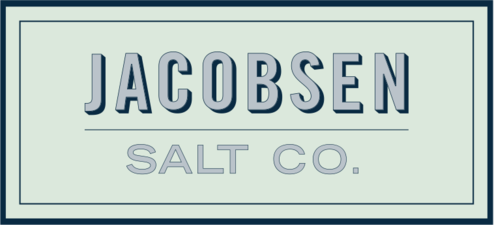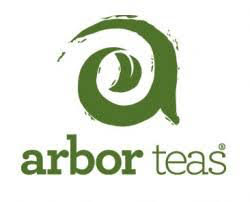
Water | Resources
Jacobsen Salt Co.
 “Harvested from the cold, pristine waters of Netarts Bay on the Oregon Coast, Jacobsen Salt Co.’s flake and kosher sea salts have gained much critical acclaim for their beautiful and pure taste, texture, and appearance, and are used by chefs and home cooks around the world. We are proud to be the leader in the emerging vanguard of American Saltmakers, as well as first company to harvest salt in the Pacific Northwest since Lewis & Clark. In addition to an extensive assortment of pure sea salts and infused sea salts, Jacobsen Salt Co. also produces a line of salty confections, cocktail salts, seasonings and spice blends.” Also various prepared food products that use this salt as an ingredient.
“Harvested from the cold, pristine waters of Netarts Bay on the Oregon Coast, Jacobsen Salt Co.’s flake and kosher sea salts have gained much critical acclaim for their beautiful and pure taste, texture, and appearance, and are used by chefs and home cooks around the world. We are proud to be the leader in the emerging vanguard of American Saltmakers, as well as first company to harvest salt in the Pacific Northwest since Lewis & Clark. In addition to an extensive assortment of pure sea salts and infused sea salts, Jacobsen Salt Co. also produces a line of salty confections, cocktail salts, seasonings and spice blends.” Also various prepared food products that use this salt as an ingredient.
BeeThinking
In our world where last year beekeepers across the United States lost 44 percent of their honey bee colonies, maybe more of us need to consider backyard beekeeping. Here on this site, home beekeeping has been simplified. Everything you need to be a beekeeper is here. “All of our beehives are crafted at our mill in Portland, Oregon using kiln dried Western Red Cedar from the Pacific Northwest. We use these same products in our own apiaries and we love to pass on our knowledge of natural beekeeping to beekeepers new and old.”
Carved Wooden Spoons
 Woodenware items you can’t find anywhere else…wooden spoons of all shapes and sizes. From tablespoons, to teaspoons, the wooden spatulas, to the more exotic shaped kitchen utensil, there’s a wooden cooking utensil for every kitchen and occasion. All of my utensils are handcrafted and with proper care can last to be passed down generations. I use sustainably harvested wood and I’m dedicated to making a 100% all natural wood product that will be enjoyed for a lifetime.
Woodenware items you can’t find anywhere else…wooden spoons of all shapes and sizes. From tablespoons, to teaspoons, the wooden spatulas, to the more exotic shaped kitchen utensil, there’s a wooden cooking utensil for every kitchen and occasion. All of my utensils are handcrafted and with proper care can last to be passed down generations. I use sustainably harvested wood and I’m dedicated to making a 100% all natural wood product that will be enjoyed for a lifetime.
Arbor Teas
 Our daily mission is to find the world’s most fantastic organic teas and deliver them to you as sustainably as possible. From our exceptional collection of organic and Fair Trade Certified® teas, to our Carbonfree® business practices, to our backyard compostable package, our passion is steeped in a desire to do worldly good, and our vision is to remain organic to a tea.” They have a wide variety of teas, plus teaware, and lots of information about tea and how to enjoy it.
Our daily mission is to find the world’s most fantastic organic teas and deliver them to you as sustainably as possible. From our exceptional collection of organic and Fair Trade Certified® teas, to our Carbonfree® business practices, to our backyard compostable package, our passion is steeped in a desire to do worldly good, and our vision is to remain organic to a tea.” They have a wide variety of teas, plus teaware, and lots of information about tea and how to enjoy it.
Lalune Naturals
Natural and organic ingredients for making your own skincare products, plus instructions and how-to videos.
Millstores
 Ready-to-finish wood furniture for every room in your home, made from a number of different types of wood.
Ready-to-finish wood furniture for every room in your home, made from a number of different types of wood.
Seventh Generation Sells Out to Unilever
Well, the world is changing.
Pioneering green products company Seventh Generation was just purchased by Unilever for $700 million.
It was actually an emotional shock for me to get this news
I remember when Seventh Generation was started in 1988. It was just before Earth Day 1990 and the book 50 Simple Things You Can Do to Save the Earth, which brought awareness to the mass market that what we do in our homes every day has an effect on the environment—for better or for worse.
Seventh Generation really was the first company to develop products with health and environment being the guiding star. And they did Read more about Seventh Generation…
For Seventh Generation to sell to Unilever…it’s the end of an era. Seventh Generation was an innovator, they were visionaries who changed the marketplace. And now decisions will be made based on mass market values instead of life values.
All I can say is thank goodness for all of the small businesses that are independently producing toxic free products. Please support them.
THE WALL STREET JOURNAL: Unilever Buys ‘Green’ Products Maker Seventh Generation
France Bans Plasticware
France has become the first country in the world to ban disposable, plastic cups and dishes.
The new law, which passed last month, requires all single-use cups, plates and other dishware sold in the country to be compostable and made at least partly of bio-sourced materials. Businesses have been given until Jan. 1, 2020 to comply.
A ban on plastic bags has been in place since July.
The decision to do this was made based on environmental considerations—France currently throws away more than 4.7 billion plastic cups every year. But it will also reduce exposure to toxic chemicals in plasticware as well.
Manufacturers, of course, are opposing the law, asserting that lower-income families regularly use disposable tableware because they can’t afford reusable tableware. I can’t agree with that argument. I once was living in a rented apartment by myself and I had one fork, one spoon, one knife, one plate, one bowl, one cup, and one glass. That’s all one person actually needs. Anyone can obtain these for practically nothing at any thrift store.
I think this is a good move, but we also need to consider the use of disposable products altogether. It is possible to have a society where everything is reusable and biodegradable. We don’t need plastic at all. Indeed, as a species we survived perfectly well without it until the twentieth century (the first plastic was bakelite, invented in New York in 1907).
ASSOCIATED PRESS: France to bid adieu to plastic dishes with controversial ban
Finding Hotels That Are Non-Toxic
Question from Mimi
Hello Debra,
This is an area in need of change!!
We have been staying hampton Inns for many years and have always called before to ask them not to use fabrezee and any fragrance in the rooms.
For a couple of years we found most of the rooms to be at least ‘liveable”
But, for the last two years we have traveled Florida panhandle, and up and back on the I 77/ I81 corridor from Fl to NH…and had some horrible experiences.
At the Hampton Inns in Florida and Virginia.. the one in Tallahassee reaked so badly that we had to leave the property at 3 AM and drive for more hours to our home,because my husband and I were getting sick. it took us two weeks to recover.
We contacted the customer service department many times and they just kept referring us to one new person after another . Yes, they compted the room, but that means nothing when you have a whole night without sleep and have a full drive the next day!
We are very upset about this!!! There are so many of us out here wanting to travel and having chemical sensitivity.
Can you recommend a hotel chain or group that would identify which hotels have nontoxic options as of Sept 2016.
We support your work and will spread the word .. thank-you for any info you can give us! And keep up the good work. More of us need to join in and change this!
Thank-you Mimi
Debra’s Answer
I totally agree with you!
I have a page about travel on Debra’s List.
I just went there and unfortunately found that the Safer Travel Directory website is no longer there.
And I searched online for anything new. Nothing. Old links broken.
I read that Hyatt Hotels and Fairmont Hotels are offering hypoallergenic rooms, but that was an old post, so I don’t know the current status. Would you contact these chains and see what the story is, and let us know?
We really need some improvement on this. Let me think about what we can do.
New Labels Can Help You Find Sofas Without Fire Retardants-But… They Still May Contain Toxic Chemicals

Last year there was a big change in the furniture world. A California law went into effect that allowed furniture manufacturers to make and sell upholstered furniture—such as sofas, loveseats, and chairs—without toxic fire retardants. That’s certainly good news!
The problem is that while the fire retardants are gone, most of the affordable sofas and chairs are still made with synthetic materials and toxic finishes like stain repellants.
Less toxic to be sure…but not toxic free yet.
Since January 1, 2015 the CA labeling law has required all upholstered furniture (couches, sofas, loveseats, and recliners) to have a label that states whether or not harmful flame retardant chemicals were added to the product.
I could have told you this last year but didn’t, because it only applied to upholstered furniture manufactured after January 1, 2015. Stores were still filled with furniture manufactured before this date.
Now, furniture manufactured since the beginning of 2015 is more widely available.
If you are buying upholstered furniture, what you want to look at is the “law label.”
And now I’m going to send you over to an article that has a very clear explanation of how to find the label, the three different labels you might see, and how to find the information about flame retardants—complete with pictures.
NATURAL RESOURCES DEFENSE COUNCIL: Want to Avoid Toxic Couch Chemicals? Just Look for New Label!






